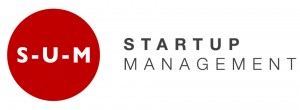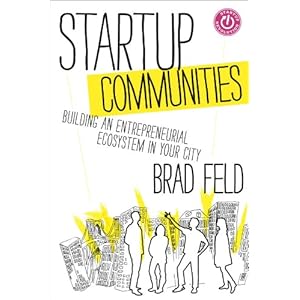I’m very excited to announce that David Cohen, Founder & CEO of Techstars will visit Toronto and Waterloo, April 22nd-23rd 2014.
 Techstars is the largest accelerator network in the world, with programs running in New York, Boston, Boulder, Austin, New York City, Seattle, Chicago and London, UK.
Techstars is the largest accelerator network in the world, with programs running in New York, Boston, Boulder, Austin, New York City, Seattle, Chicago and London, UK.
This is David’s second Canadian visit (he was a speaker at Startup Empire in 2008), but this time I’m going to take him around to a few startups and tech accelerators in Toronto and Waterloo.
The two main public events that you don’t want to miss will be the fireside chat interviews, similar to the previous one I did with Albert Wenger on Oct 23rd 2013. David loves to interact with entrepreneurs, so we’ll be in for a treat during the Q&A period.
Schedule Details
- Toronto: April 22nd, 5:30PM-8PM. Location: OneEleven Centre, 111 Richmond West, 5th Floor. Register early at $9, before the price goes up to $11.
- Waterloo: April 23rd, 6PM-8:30PM. Location: Tannery Event Centre at the Communitech Hub, 151 Charles Street West. Details will be posted on the Communitech Events page.
As a preamble to this visit, I asked David a few questions:
Q- Why have you decided to spend 2 days in Toronto and Waterloo?
David: I’ve been hearing about the fantastic startup community that has evolved there, and I want to see it with my own eyes!
Q- What important trends are you seeing in the tech/VC startup scene that young entrepreneurs should know about?
David: I think there are now about 10 great startup communities in the world to build Internet startups. I won’t start a war by saying which cities I am referring to. However, part of my personal mission and part of the mission of Techstars is to bolster that number to 50 or 100. We can do it. The idea that you have to be in Silicon Valley is so passé now. Sure, that’s one great place to be. But there is widely available information about great startups starting in many other communities now, so it’s certainly not the only place these days. I love that our generation gets to drive this change.
Q- Reflect on 2014 vs. 2007 when you ran the first program, and where Techstars might be in 2018?
David: Well, in 2007 this was nothing more than an experiment. Could we use a little capital and a ton of intense mentorship and the support of an entire community to attract great startups to apply? It turns out we could. Would they be able to raise money? Yup, $500M and climbing. Would they be successful? Yup, 33 exits now and billions in portfolio value. It has far exceeded my expectations. We have taken the idea of mentorship driven accelerators to great markets in the US. I can see us expanding a bit internationally in the coming years. We are also helping amazing corporations like Disney, Barclays, Sprint, R/GA, Kaplan, and more by running accelerators for them as they “give first” to founders in their areas of expertise. We’ll do more of that.
These 2 events will be sold out to capacity, so I’m inviting you to register asap, for Toronto or Waterloo.
David Cohen’s Bio
David Cohen is the Founder, CEO and Managing Partner of Techstars. Previously, David was a founder of several software and web technology companies. He was the founder and CTO of Pinpoint Technologies which was acquired by ZOLL Medical Corporation (NASDAQ: ZOLL) in 1999. You can read about it in No Vision, All Drive [Amazon]. David was also the founder and CEO of earFeeder.com, a music service which was sold to SonicSwap.com in 2006. He also had what he likes to think of as a “graceful failure” in between.
David is an active startup advocate, advisor, board member, and technology advisor who comments on these topics on his blog at DavidGCohen.com. He recently co-authored Do More Faster with Brad Feld. He is also very active at the University of Colorado, serving as a member of the Board of Advisors of the Computer Science Department, the Entrepreneurial Advisory Board at Silicon Flatirons, and the Board of Advisors of the Deming Center Venture Fund. He is a member of the selection committee for Venture Capital in the Rockies, and runs the Colorado chapter of the Open Angel Forum. His hobbies are technology, software/web startups, business history, and tennis. He is married to the coolest girl he’s ever met and has three amazing kids who always seem to be teaching him something new.
Toronto Location
OneEleven, 111 Richmond Street West, 5th Floor, Toronto. OneEleven is Toronto’s newest accelerator. It’s your chance to visit this brand new 15,000 square feet facility, dedicated to accelerate the commercialization of cutting edge research and development for the economic prosperity of the region.
Location
OneEleven, 111 Richmond Street West, 5th Floor, Toronto. OneEleven is Toronto’s newest accelerator. It’s your chance to visit this brand new 15,000 square feet facility, dedicated to accelerate the commercialization of cutting edge research and development for the economic prosperity of the region.
This event is organized by Startup Management and hosted by OneEleven. It is made possible due to a sponsorship of OMERS Ventures.
Startup Management is a knowledge resource for growing, scaling-up and managing startups.
OMERS Ventures invests in companies with significant growth potential and market opportunities, seeking partners with a shared vision of building a vibrant knowledge economy.
OneEleven is a unique centre for commercialization that will create the talent and technologies that shape our future in ‘Big Data’.








